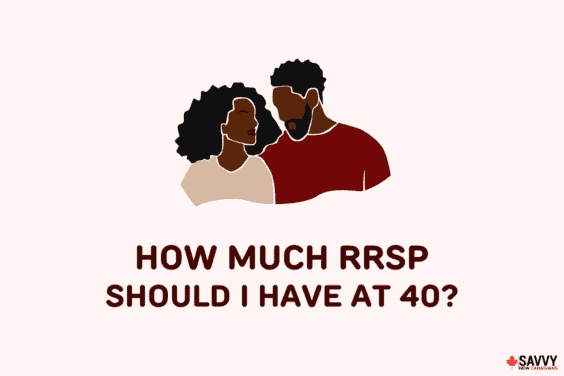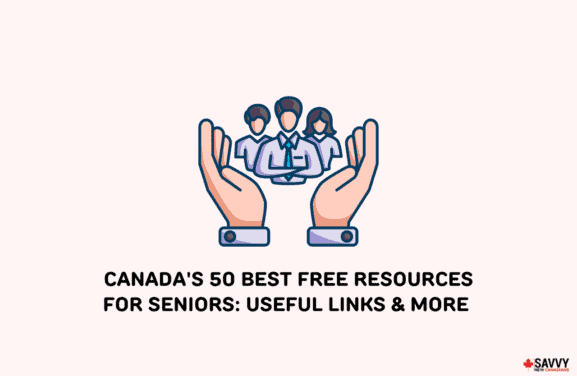Low-income seniors in Ontario have several affordable housing options that aim to help them achieve a more independent way of living and a better quality of life while aging in place.
These government housing initiatives include Rent-Geared-to-Income Housing (RGI), Ontario Priorities Housing Initiative (OPHI), Canada-Ontario Housing Benefit and co-operative housing.
This article will cover these senior housing options in Ontario, how to qualify for low-income senior housing, and how to apply for subsidized senior housing in the province.
Housing Options for Low-Income Seniors in Ontario
Rent-Geared-to-Income Housing
Rent-Geared-to-Income (RGI) Housing, or subsidized housing, allows low-income seniors to rent affordable homes.
In many cases, RGI rent is capped at 30% of a household’s monthly Adjusted Family Net Income (AFNI). If you receive social assistance, your rent will be based on the rent benefit established by the government of Ontario.
To qualify for RGI housing, you must meet a range of requirements, which include the following:
- At least one person in the household is 16 years old or older
- Household income is not over the allowable income or asset limit
- Total household assets are within asset limit requirements
- Proof of status of each household member
To apply for RGI, go to MyAccesstoHousingTO. You can complete the application process via smartphone, tablet or computer.
Ontario Priorities Housing Initiative (OPHI)
OPHI, a part of Ontario’s Community Housing Renewal Strategy, is a homeownership program that addresses affordable housing needs in Ontario by providing forgivable loans to low- to moderate-income homeowners and landlords of affordable rental buildings.
The goal is to accelerate the construction of more safe and affordable housing, perform more renovations and repairs and enhance housing conditions for eligible individuals, which include low-income seniors.
Eligibility
To be eligible for OPHI, the tenants must be:
- Considered “Indigenous” or “Indigenous households”
- Qualified to be included on an existing social housing wait list
- Paying at least 20% of their income on rent
OPHI provides eligible buyers with a down payment and closing cost assistance through a forgivable loan. It will fund up to 75% of the pro-rated share of the capital costs of the affordable units.

Canada-Ontario Housing Benefit (COHB)
In this program, eligible seniors receive a monthly benefit that helps them pay their rent anywhere in Ontario. Reviewed every year, the COHB is based on household income and local market rent.
Eligibility
To be eligible for this benefit, you must:
- Be a permanent resident of Ontario
- Be on a social housing waitlist (or be qualified to be on the list) or live in community housing
- Living in community housing
- Have filed your latest income tax return
If you are already receiving RGI or another type of housing assistance or subsidy (except for Ontario Works or ODSP shelter amounts), you are not qualified to receive the COHB. For more details on eligibility requirements and to apply, contact your local Service Manager.
How Much You May Receive
The COHB amount you receive depends on two situations:
- If you are not receiving social assistance – You will receive the difference between 30% of your income and 80% of the average market rent in your location.
- If you are receiving Ontario Works or ODSP – Your total COHB amount will not be more than the difference between 30% of your income and 80% of the average rent rate in your area.
To keep receiving the COHB, complete and return the renewal application form in May of each year and file your income tax return on time every year. As the payments for COHB are portable, you can receive them regardless if you move to another location.
Payment Dates
COHB payments are issued every 28th day of each month through direct deposit.
Co-operative Housing
Co-operative housing is a non-profit housing where residents collectively own and manage the property. They elect a board of directors to govern its management. Members purchase shares in the co-op, which allows them to occupy a unit and help run the community.
Many housing co-ops have rent-geared-to-income units that offer lower rents. To live in a housing co-op, you have to apply for membership and participate in running the co-op. You also need to pay a monthly maintenance fee to contribute to operational expenses.
How Do You Qualify for Low-Income Senior Housing in Ontario?
Certain factors and criteria dictate whether or not you qualify for low-income senior housing in the province:
- Age. The typical age requirement to be a senior in Canada is 65. It’s commonly used for eligibility in many government programs, including housing.
- Residency and status. To avail of affordable housing programs, a senior must be a citizen or permanent resident of Ontario.
- Income. A specific income threshold, which varies by region and housing program, is also required. The amount is often established based on the median income in your location and adjusted for your household size.
- Need for affordable housing. To be eligible for affordable housing, you must demonstrate a need for it, which includes living in unsafe or inadequate housing.
How to Apply for Subsidized Housing in Ontario
You can apply for subsidized senior housing in Toronto through Access to Housing, which manages one centralized waiting list. Regardless of where you apply, you need to submit an application to Access to Housing.
You can apply in person or online. Forms are downloadable and can be mailed, faxed, emailed or dropped off.
FAQs:
What is the income limit for subsidized housing in Ontario?
Subsidized housing in Toronto requires that your income does not exceed the local Housing Income Limits that the Province of Ontario establishes annually. A two-bedroom unit in the city has an annual household income limit of $42,900.
How long is the waiting list for subsidized housing in Ontario?
The average wait time for a Studio – Senior unit is 8 years. For a two-bedroom unit, it’s 13 years, while a 3+ bedroom unit averages 15 years on the waitlist. This information is based on 2022 data.
How many Canadians live in subsidized housing?
According to the 2021 Canadian Housing Survey, around 842,000 Canadians (or 3% of the population) aged 15 years and older were living in subsidized housing in 2021. Government subsidies on rent (at 66%) were the most common type of subsidization, followed by subsidies through a housing cooperative (16%) and subsidies by non-profit organizations (12%).



